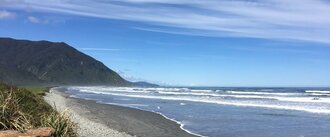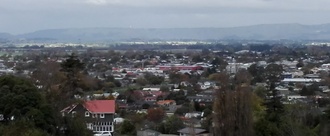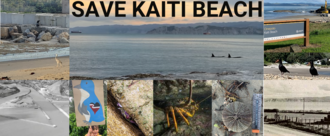-
Stand Up For the Conservation Lands in Your CareWhether these lands are called stewardship lands or Schedule 4 lands they are all part of the DOC estate and many areas contain rare species or act as buffers for their habitats. We urge you to protect the waterways above and below ground and prevent the creation of thousands of tonnes of toxics waste containing heavy metals. Climate change is already affecting the natural world and creating serious environmental stress. To sacrifice species such as the 200 million old Archeys frog species so that overseas corporations can make large profits, is bad for the economy and our reputation. You will recall that in 2010 40,000 people marched down Queen St in Tamaki to protest the proposed mining of conservation lands and National Parks. There is no mandate for the destruction Shane Jones is determined to impose, in fact there is huge public support for protecting the natural world. These places are too precious mine and we need leaders in Cabinet to actively protect them.3,386 of 4,000 SignaturesCreated by Coromandel Watchdog
-
The Right to WalkDunedin city centre should prioritise walking as a carefree right and allow retailers to thrive off a steady flow of safe, comfortable, and eager customers. The current renovations on George Street have made progress towards this ideal, but they have been undermined by the decision to permit car travel between the pedestrian zones. Cars will only cause congestion and damage to the tiled road surface, resulting in great harm both for retailers, who have endured a pandemic on top of everything else, and pedestrians. Given that the city has survived without direct vehicle transit through George Street for many months now, it is self evident that cars are not needed within the city centre. We call on the Dunedin City Council to change its approach and fully pedestrianise the renovated George Street once it is reopened. In doing so, pedestrians can safely enjoy their town and retailers may enjoy a steady flow of foot traffic to support their small businesses. Let’s keep the charm of our inner city by making it car free, sign the petition if you agree!50 of 100 SignaturesCreated by Luke Mitchell
-
Stop the disposal of untreated wastewater into the Porirua HarbourWastewater in the moana affects many aspects of life in Porirua, from getting an infected cut from going in the harbour to having the smell of sewerage throughout the city at low tide. Within the community there is a deep concern and frustration regarding the persistent and hazardous issue of wastewater overflow into the ocean. Further growth and development planned for Porirua without critical infrastructure updates to accommodate for how this may impact our waterways will lead to further health risks for residents, the environment and ecology of the harbour . Stop the disposal of untreated sewage into Te Awarua o Porirua. We acknowledge that Porirua has been facing this issue for an extended period, and despite multiple attempts to address it, the problem remains largely unmitigated. The adverse effects of wastewater overflow are evident and detrimental. We need a bold plan out of this crisis, not fragmentary change and band aid solutions. Wastewater overflow affects Porirua in multiple ways. 1) Greenhouse gas emissions: Continuous wastewater overflow is contributing to environmental degradation and climate change. The Porirua Wastewater Treatment Plant produces 13% of Porirua’s GHG emissions. With a number of new housing developments emerging around Porirua our current infrastructure won't be able to sustain a growing population on top of incoming climate change effects. This poses a direct threat to the well-being of our community and future generations. 2) Public Health Risks: Wastewater overflow introduces harmful pathogens and contaminants into our environment, putting our health at risk. Exposure to these pollutants can lead to waterborne diseases, respiratory problems, and other health issues. 3) Environmental Degradation: The continuous discharge of untreated wastewater has detrimental effects on our local ecosystems, polluting water, soil, and air. It harms aquatic life, vegetation, and contributes to the degradation of our environment. 4) Diminished Quality of Life: Residents of Porirua are forced to endure unpleasant odors, unsightly conditions, and leaves us unable to interact with the ocean without anxiety of potential health risks. 5) Long-Term Sustainability: Invest in sustainable wastewater infrastructure and practices that minimize environmental and climate impact and provide a reliable and resilient system for the future in collaboration with Mana Whenua. 6) Impact on mātauranga and cultural practice: Mana whenua, Ngāti Toa have a rich cultural heritage that is deeply intertwined with the moana. The constant overflow of wastewater not only disproportionately affects our physical health but also jeopardizes the cultural practices and mātauranga that reinforce them. We urge you to take immediate action and allocate the necessary resources to eliminate the threat of wastewater overflow. Porirua deserves a cleaner, healthier, and safer environment for ourselves and future generations. This issue requires immediate attention and your commitment to finding a lasting, sustainable solution. References “Public urged to stay out of flood, sea waters as Porirua wastewater treatment plant overflows” 1news. https://www.1news.co.nz/2019/12/07/public-urged-to-stay-out-of-flood-sea-waters-as-porirua-wastewater-treatment-plant-overflows/ “Sewage spills lead to rāhui for Porirua Harbour” Te Ao Māori News. https://www.teaonews.co.nz/2021/07/26/sewage-spills-lead-to-rahui-for-porirua-harbour/ “Te Awarua o Porirua” Ngāti Toa Iwi News. https://www.ngatitoa.iwi.nz/new-page-17 “Wellington region records more than 7000 sewage overflows in five years” NZ Herald. https://www.nzherald.co.nz/nz/wellington-region-records-more-than-7000-sewage-overflows-in-five-years/5P5QXC5NWZFFPOF3OAYDUKRGRI/ “Porirua wastewater proposal 'a licence to pollute', critics say” RNZ. https://www.rnz.co.nz/news/national/447665/porirua-wastewater-proposal-a-licence-to-pollute-critics-say802 of 1,000 Signatures
-
Adopt the Zero Carbon Plan 2030Our city needs a plan to protect our people, our places, and the things we love from climate change. Dunedin City Councillors have the opportunity to do this by adopting the Zero Carbon Plan and working to achieve zero carbon by 2030. ➡️ Climate change threatens our very future. The Intergovernmental Panel on Climate Change (IPCC) warns of a “rapidly closing window of opportunity to secure a liveable and sustainable future for all” (1). To avoid the worst impacts of climate change, global warming must be limited to 1.5 degrees above pre-industrial levels. This means reducing our carbon emissions as soon as possible. ➡️ Mitigating the impacts of climate change demands urgent action. We must act now to reduce greenhouse gas emissions across all sectors. Although this may seem costly, the IPCC warns delaying action will create a false economy. Our savings now will mean future climate mitigation options become more costly and less effective. ➡️ There is a consequence to delay. If inaction causes us to overshoot the Paris Agreement target of net zero by 2050, the IPCC predicts that we risk triggering feedback loops that will be difficult - or impossible - to reign in. For Ōtepoti Dunedin, this means more extreme weather events, rising sea-levels, and more pressure on our native wildlife and ecosystems. Urgently reducing our carbon emissions is the right thing to do — for our community now and in the future. If Dunedin City Councillors choose to delay our zero carbon targets, we all pay the price. It will threaten our homes, livelihoods and even our lives. Dunedin’s Zero Carbon by 2030 goal means that we are working towards a livable and sustainable future and saving money in the long run. Kicking the can down the road puts that at risk. We simply can’t afford to wait. (1) AR6 Synthesis Report Summary for Policymakers: Climate Change 2023 (ipcc.ch/report/sixth-assessment-report-cycle).618 of 800 SignaturesCreated by Forest & Bird Dunedin

-
Don't Subsidise Pollution: End Free Carbon CreditsSubsidising pollution in a climate crisis doesn’t make sense. When we all play our part in cutting climate pollution, then we can get further together, faster. But as cyclones and floods devastate communities across Aotearoa, the people in government are allowing large multinationals to have a free pass to pollute. Multinationals like Rio Tinto and Methanex are part of a select few corporations who produce 10% of Aotearoa’s climate pollution and get a $600 million a year subsidy to offset their emissions, in the form of free carbon credits. This encourages these companies to maintain business as usual, not to invest in decarbonisation. Under current legislation, these companies will still be getting free credits for decades to come, even after the whole country is meant to be at net zero emissions. Meanwhile, everyday households play their part by paying the carbon price in our petrol and electricity bills. This is increasingly putting the burden of action on individual households to try to meet our targets, while some of our biggest polluting industries continue to get a free pass to pollute. The good news is that with the right type of government support, the technology is there for industries currently getting free credits like steel, concrete and aluminium to transition. The recent announcement of NZ Steel’s decarbonisation plans with support from government shows that change is possible, and that free carbon credits are no longer needed. By ending free carbon credits, providing upfront loans for industries with decarbonisation options, and protecting domestic producers from more polluting competitors with a Carbon Border Mechanism, the government can accelerate emissions reductions and ensure every sector is taking responsibility for its pollution. We can protect jobs that are necessary for decarbonising the wider economy, while supporting a just transition for those in industries that don’t have a place in a climate safe future. Together we can create an industrial future for Aotearoa that is green, creates good jobs, and ensures a fair distribution of effort in cutting climate pollution. This petition is organised by Common Grace Aotearoa in collaboration with the NZ Green Building Council Te Kaunihera Hanganga Tautaiao, 350 Aotearoa, Greenpeace Aotearoa, Parents for Climate Aotearoa, Coal Action Network Aotearoa, Christian World Service, the Anglican Bishop of Wellington, Generation Zero, Climate Club, Engineers for Sustainable Development, and Oxfam Aotearoa.6,230 of 7,000 SignaturesCreated by Common Grace Aotearoa
-
Wayne Brown: Don't Cut Community Services!NO CUTS Wayne Brown’s Budget 2023/24 is proposing to cut funding to crucial community support services during a cost of living and climate crisis. The people of Auckland are deeply concerned about the proposed budget. We understand that the Council is facing financial challenges, but we urge Auckland Council to reconsider these cuts as they will have a severe impact on the community. “Cutting regional community focused initiatives … of all groups working with Māori, Pasifika, youth, refugee, new migrant and rainbow communities.” - Page 30, Te Wāhanga Tuatoru: Te Pūtea e Marohitia Ana, Annual Budget Proposal 2022/23. We can see the budget has targeted marginalized communities, yet does not suggest cuts to industry and business whatsoever. The proposed budget cuts will have far-reaching consequences for all Aucklanders, but especially our most vulnerable residents, including children, the elderly, the working poor, and those with disabilities. Cuts to climate change, social services, community venues, public transport, arts,and education will have a devastating impact on these communities, and protesters are determined to make their voices heard. The proposed cuts to community services, including libraries, community venues and centers, youth and homelessness, early childhood education, Arts and culture, water quality and public transport, will have a negative impact on the quality of life for many Auckland residents. These services are essential for the well-being of our community and provide opportunities for social interaction, education, and access to essential resources. Furthermore, the proposed cuts to environmental initiatives, including park maintenance and waste management, will have a detrimental effect on our environment. These initiatives are critical to the sustainability of our city and the protection of our natural environment and resources. We understand that difficult decisions must be made regarding the budget, but we urge the Council to prioritize the needs of the most vulnerable. We believe that alternative solutions and a better budget is possible. The Auckland council’s feedback report suggested that the majority of Aucklanders reject this proposed budget, and it is not suited to serve Auckland residents. The sale of the airport shares is not necessary or helpful and will take Auckland backwards. The airport shares are an important revenue stream, the airport is increasing in value, and it is an asset that the Council can borrow against. The 18% shareholding is also an opportunity for public voice on the future of the airport, a strategic asset - and it is important that the Council holds onto public control in the face of climate and health emergencies. The Community Coalition against the Cuts demands that Auckland Council, Mayor and Councilors listen to Aucklanders. Consider and implement the voices of Aucklanders who took their time to give their feedback. We fully reject this proposed budget, and we demand the following: 1- NO CUTS TO REGIONAL & COMMUNITY SERVICES 2- INCREASE RATES & DEBT 3- NO SALE OF AIRPORT SHARES The super-rich must pay for this budget deficit, not the most vulnerable. We demand that any shortfall in the Council's books should be filled through increased rates on big business, and charges on luxury items such as private helicopters and super-yachts, not cuts which hit the poorest hardest. We need to be expanding services, not cutting them. We demand that the Council expands public transport, making buses and trains free and frequent, and takes more action on climate change amidst a climate crisis. We demand more funding to tackle poverty and homelessness. Therefore, we call on Auckland Council to reconsider the proposed budget cuts and to find alternative solutions that do not compromise the well-being of our community and our environment. We fully reject this budget we will not sit by quietly. We say, NO CUTS! Community Coalition Against Cuts252 of 300 SignaturesCreated by Community Coalition Against Cuts

-
Open Letter: Ban Mining in Conservation Land NowThe Labour Government has a long held policy of extending Schedule 4 over the Southern Hauraki and has had a policy of no new mines on conservation land since 2014. Since taking office in 2017, the Party has failed to make either policy law. We are writing to you now as Conservation Minister to challenge you to step up and prevent mining companies from undermining Hauraki / Coromandel and all conservation land nationwide. We believe that in order to retain any credibility around conservation, your Government must fulfill the commitment made upon first taking office by passing a law that will fully protect all conservation land from mining. We understand that negotiating with tangata whenua takes time, but that specific Te Tiriti obligation can be written in to the law. We are in a biodiversity crisis, we are in a climate crisis. Why would we compromise even part of one of our biggest assets, our biggest carbon sinks, our last bastion of the unique and special ecology of Aotearoa New Zealand, conservation land, by allowing and enabling mining activity in these places. You as Minister have the power, and the responsibility, to ensure that our children and grandchildren can have a relationship with the natural world that sustains us in the years to come; the responsibility to ensure that all the unique flora and fauna reliant on these spaces can survive and flourish into the future, the responsibility to provide for future generations.1,257 of 2,000 SignaturesCreated by Coromandel Watchdog
-
Create a Ministry of Green Works to build sustainable, resilient communitiesPeople in Aotearoa want the foundations of our communities to be resilient and sustainable for ourselves and for our grandchildren. We want our homes, our ways of getting around, the grids our power depends on, the pipes our water runs through, and the lines that underpin our communication to be reliable. Most of us want the work we do to make a difference in our communities and care for our beloved natural environment. The destruction from Cyclone Gabrielle and climate-charged flooding in Auckland have shown the urgent need to strengthen those foundations. Decades of underinvestment in essential infrastructure by people in successive governments has left our communities vulnerable. Instead core public development has been contracted out into sporadic projects. This has diverted funding into corporations’ pockets and created unstable employment for workers. The piecemeal approach has also led to the loss of the public sector knowledge that is needed to respond to large scale challenges. We need new institutions designed to do what works to make a just transition from dependency on fossil fuels and high-emission industries. Institutions that can respond to immediate needs, plan for long-term and large-scale change, and embrace Te Tiriti o Waitangi and the leadership of tangata whenua. A Ministry of Green Works would: - Deliver a mass scale build of beautiful, sustainable public housing to reduce the shortage of homes - Roll out an integrated network of passenger rail - Bring resources and support to community-led adaptation and in places that are now vulnerable to climate disasters - Train up the next generation of apprenticeships and essential workers for green infrastructure that is resilient in the face of future challenges The Ministry of Green Works will support Te Tiriti-based governance by resourcing tino rangatiratanga so that hapū can lead in this space as well. It will not be able to take land and could also play a role in recommending that land be transferred to Māori supervision as part of good environmental management. What we build, whether it be marae, public transport or storm water drainage, has the power to nourish our environment and reduce inequities. But we need the government to put a Ministry of Green Works in place now to build the future our grandchildren deserve. Further reading here: https://apo.org.au/node/3154991,961 of 2,000 SignaturesCreated by Team ActionStation

-
Protect the Right to Life with Dignity of the Banaban CommunityAs a colonial power, New Zealand exploited Pacific Islands including Banaba, part of modern-day Kiribati, where 90% of the island’s surface was mined by the British Phosphate Commission – jointly owned by the British, Australian, and New Zealand governments – from the early 1900s to the end of the 1970s. This extractive practice left behind barren and uninhabitable land, resulting in the forced resettlement of Banabans to Rabi island in Fiji in 1945. To this day, Banabans on Rabi face discrimination as a nation of people falling between jurisdictions with none wanting to take responsibility.536 of 600 SignaturesCreated by ICAAD (Intl Center for Advocates Against Discrimination)

-
Let Coast Road people have their say! Publicly notify any consent to mine in Barrytown.A proposed venture to start mining the Barrytown flats could lead to a decades-long industrial operation in this beautiful area of the West Coast. Despite the company and council's claims to the contrary, a venture of this size and scale could have many more than minor adverse effects on the community and environment including: * All of us who live and have businesses along the scenic Coast Road. * The environment: particularly birds, wetlands and the vulnerable coastal zone with a high-water table. * Highway safety for all, residents and visitors; along the narrow Coast Road. * The reputation and enjoyment of the Coast as a tourist destination. Therefore, the GDC and WCRC should adhere to democratic process and allow the affected parties to at least be heard. PUBLICLY NOTIFY any consent to mine here!282 of 300 SignaturesCreated by Coast Road Residents
-
Tiakina tō tātou hau / Save our airMāori have deep seated beliefs of the natural world, that it has a spiritual mauri. This is why we had and still have entities that represent these natural resources. None of the RMA consents ever take this aspect of our beliefs into account. And now the Mauri of nature of Papatuānuku (earth) and Ranginui (sky), Tangaroa (sea), Tāne Mahuta (Forest) is dying, And we will also eventually die because of this. Māori suffer high rates of respiratory illness, cancer and early death not to mention ill mental health because of the systematic barrage of pollution of nature. Everyone will suffer mental illness because nature is dying. This pyrolysis plant will destroy our quality of air, land and waterways through its discharges and waste residue such as charcoal and slag. Thereby creating an unsafe environment for our descendants. We have a lot of polluting factors in this area such as a high volume of traffic and fumes, industrial waste, stench coming from the slaughter houses and their waste, a Pyrolysis plant will add to that pollution as it will be burning plastic as well. The plant needs to have a continuous feedstock which means all the rubbish from the lower North Island will be coming to Feilding! We want an environment now and into the future that is as healthy and sustainable as possible. The barrier to our success is the Horizons regional council and their consenting of such permits. They hear our submissions and our protest but go ahead with their various projects. None of which actually benefit tangata whenua. The other barrier is that the Council which should be listening to ALL of its constituents are putting money and profit before people and the need and want to preserve what we have for future generations. It is urgent because the plant itself is being built and the last piece of the puzzle (the emissions to air permit) is under consideration right now. We do have a time to put in our objections via submission but there is no guarantee that we will win. There is an urgency to pull out all the stops. The impact of your action will allow us to investigate and implement a Zero waste management operation, that will benefit our community via jobs for locals, encourage people to be conservative with their waste, to recycle, re-use , and repurpose. We would have repair cafes which encourage reusing furniture and so on instead of continually throwing unwanted items away.. It will also only deal with our local waste, not everyone's in the bottom of the North Island. Your help will make all the difference.419 of 500 SignaturesCreated by Mereti Taipana
-
Save Kaiti Beach; PROTECT our History and BiodiversityEastland Port is planning to carry out substantial construction work to expand their port in Tūranga-nui-a-Kiwa Gisborne. This includes further reclamation of reef and ocean space near the river mouth and more dredging with disposal of materials to the off shore disposal ground located within the bay.(1) These proposed works would create further loss of habitat for taonga species, fail to respect significant cultural values and will distort a precious historical site of Aotearoa New Zealand. The species currently occupying this area are Kororā (little blue penguin), Toreā (oystercatcher), Taranui (caspian tern), Matuku Moana (white faced heron), Kāruhiruhi (pied shag), Kawaupaka (little shag), Tākapu (gannet), Karoro (black backed gull), Kōtare (kingfisher), Kekeno (fur seal), Whai (stingray), Kōura (crayfish), Kākahi (fresh water mussel), Pāpaka nui (purple rock crab), Kina (sea urchin), Manaia (seahorse) to name a few. Orca whales also feed from the reef with their young at certain times of the year. Previous construction work by Eastland Port destroyed an estimated 35 to 70 kororā (little blue penguin) nests during the breeding season in 2021. The habitat was located within the rock wall where the port carried out demolition and reclamation.(2) The consent granted to Eastland Port was a Limited notification which didn't allow for Public Submissions. The site of the proposed works is described as nationally and internationally significant to our country. A natural reef formation used by ancestors of Māori as a landing point dating back many centuries ago. The landing entrance later saw an arrival of Europeans. Kaiti Beach represents a significant historical site used by both our Māori and Pākehā ancestors. In the words of Dame Anne Salmond: “The foreshore of the Tūranaganui River is one of the world’s great voyaging sites. It is the landing place of the Horouta canoe, celebrating the achievements of the Polynesian star navigators. It is the place where Captain James Cook and his companions first came ashore in New Zealand, heralding the traditions of European exploration and discovery. It is the site where Tupaia, the Ra’iatean high priest navigator who sailed with Cook, first met Māori, marking the links between local people and their ancestral homelands. It is a meeting place of cultures, of challenges and shootings, as well as friendly exchanges. Here Captain Cook and a local man saluted each other with a hongi on Te Toka-a-Taiau, the first greeting between a Māori and a European. It is a sacred site for all New Zealanders, to be celebrated with pride and treated with dignity."(3) In the words of Sir Derek Lardelli: Te Toka-a-Taiau, the rock of Taiau, Te Pito o Te Ao, is the core of our universe, a Tairawhiti perspective Ko Te Toka-a-Taiau, Te herenga o ngā wai mai te hononga o ngā rua Te Toka-a-Taiau is the spiritual gathering place of our ancestors Ko Te Toka-a-Taiau, Te whakatinanatanga o te whakapapa We are the kaitiaki guardians of this very sacred site and Te Toka-a-Taiau is the physical reminder of our commitment to the land, the people and our environment Ko Te Toka-a-Taiau he mauri tipua Te Toka-a-Taiau is the spiritual essence of our ancestors Ko te Toka-a-Taiau he mauri tawhito Te Toka-a-Taiau is a spiritual essence from ancient times He mauri no te kukunetanga mai i Hawaiki The spiritual essence from the origins of time and the spiritual homeland of Hawaiki Mauritū nei hei ahurewa tapu That stands as a sacred alter Mauritū nei hei tūāhu tapu That stands as the launching pad of our destiny"(3) We believe all people of Aotearoa New Zealand would consider this a significant piece of history and we need to protect the area from further disruption and modification. We ask you to join us in saying “Enough!” to Eastland Port and Gisborne District Council. Join us in calling for the protection of this natural environment, a life source, a habitat of taonga species, a significant piece of history connecting each of us to our identity. We must protect it for future generations so they can connect to their history. This is our chance Aotearoa New Zealand, let's stand together, side by side to give this area the respect and dignity it deserves. Let it be your time in history to help shape this moment and move us all forward in an ethical direction to let the healing begin. Thank you for your time and consideration in signing this petition. This petition will be used as evidence for public support to deny the consent application submitted by Eastland Port. References: 1. https://www.gdc.govt.nz/consents-and-licenses/notified-consents/notified-consents/Eastland-port-limited 2. Recommendations for penguin management for the Waikahua seawall project at Eastland Port (December 2021). Dr. John Cockrem. https://www.gisborneherald.co.nz/frontpage-featured/20211223/seawall-deadly-for-korora/ 3. The Tūranganui River; A Brief History (October 2006). Michael Spedding. Articles: https://www.stuff.co.nz/national/126798579/little-penguins-left-dead-injured-and-homeless-after-seawall-rebuild-in-gisborne https://www.gisborneherald.co.nz/frontpage-featured/20211022/penguin-alert-locals-urged-to-keep-an-eye-out-after-korora-little-blue-pen/ https://www.gisborneherald.co.nz/local-news/20211027/call-hotline-first-regarding-wildlife-concerns-or-findings-department-of-c/ https://www.gisborneherald.co.nz/local-news/20211028/port-stops-work-pending-search-for-penguin-nests/ https://www.gisborneherald.co.nz/frontpage-featured/20211202/rallying-for-korora/ https://www.gisborneherald.co.nz/frontpage-featured/20211223/seawall-deadly-for-korora/ https://www.gisborneherald.co.nz/frontpage-featured/20220108/penguin-safety-fears/ https://www.gisborneherald.co.nz/frontpage-featured/local-news/editors-pick/20220603/taking-care-of-penguin-business/173 of 200 SignaturesCreated by Waikahua Kororā Kohanga Group .

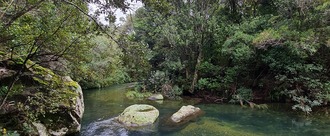
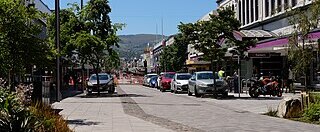
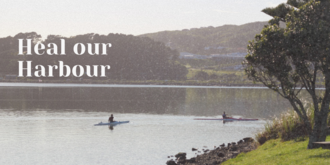
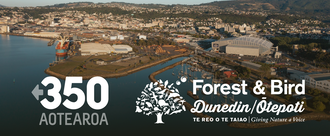
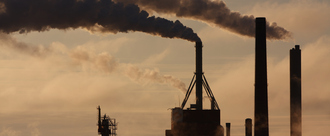
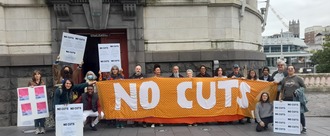
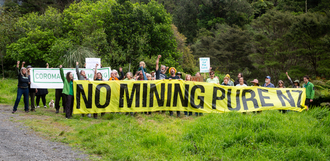
.png)
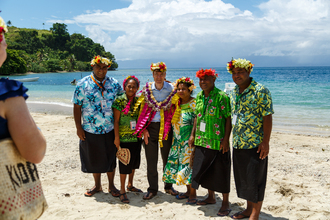%20(1).jpg)
